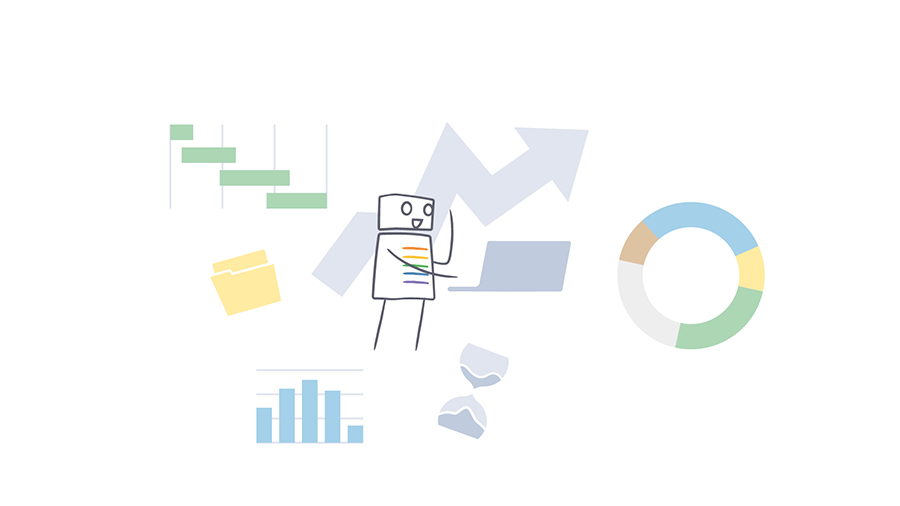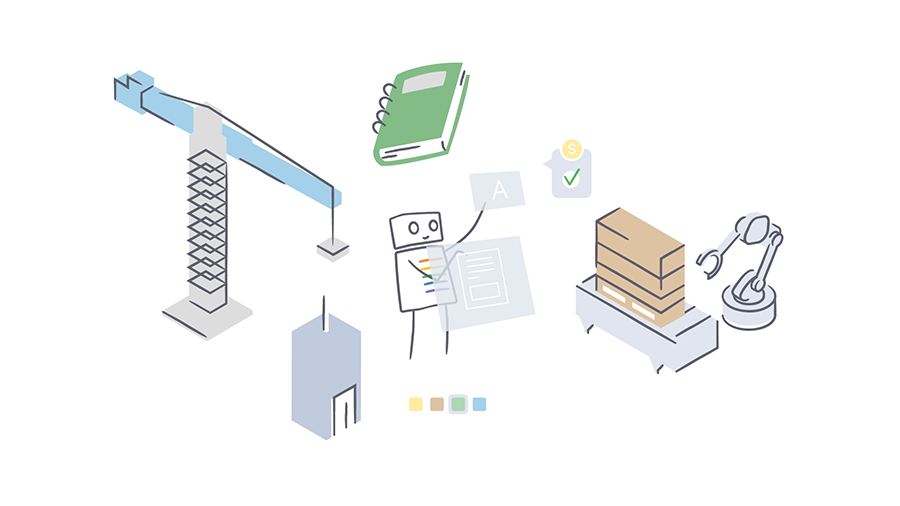
SolidRules and AI: a persistent and countercurrent journey in business automation

Artificial Intelligence: for some, it's just Marketing
Today, even the most unsuspecting individuals engage in discussions about Artificial Intelligence (AI), whether in Italian as "IA" or in English as "AI" (take your pick). More or less relevantly, every technology advertisement now includes the term Artificial Intelligence. Frankly, I wouldn't be surprised if, in the near future, the first marketing genius proposes the new AI Piadina (please, stop!). Given that everyone is talking about it, you might wonder why I also thought to bother you with an article on AI. Truth be told, I'm doing it because I've already bored colleagues and relatives to tears on this topic, so... now it's your turn.
Before everyone started talking about it, AI was already Heating Up at Alexide!
Before discussing something, one must demonstrate competence in doing so. I could talk about my academic background, but unfortunately for me, those belong to the computer dark ages (even then, I was mysteriously attracted to esoteric things like neural networks rather than genetic algorithms). Actually, aside from me, there are those around here who understand a thing or two about AI, and as proof of this, I can tell you that we introduced Artificial Intelligence way back in 2016. We started with the first research project aimed at predicting the position of an object in an environment without using GPS or other devices. We experimented with it with mixed fortunes to recognize objects, to understand how many people are in a room with and without a camera, etc. In 2021, we developed an AI system that decides when to turn on the lights and when to turn on the heating and air conditioning, a system that amazingly still works rather well!
At Alexide, we were certainly not unaware of what could be done with AI, but on November 30, 2022, when ChatGPT was introduced, it marked a before and after. Personally, I can say that I understood quite well the scope of the novelty and felt a chill down my spine.
Artificial Intelligence: a Valuable Aid, beyond a billion-dollar business...
The algorithm behind it is probably relatively simple in itself (it's easy to say in hindsight...), but the OpenAI team did a masterpiece in managing monstrous volumes of data in a compressed manner. One of my colleagues, after giving a very high-level explanation of the storage model based on numerical vectors, seeing the confusion of some, made this closing remark: "it's as if they've put all 8 billion individuals in the world into one square millimeter."
The other masterpiece they achieved is in fishing out and cleaning tons of data from the internet. But on this "fishing" I hope that one day some regulator will shine a little light. For example, there are almost certainly contributions produced by me that I had put on the internet for free use by humans. Obviously, my contributions could only have worsened the AI's performance by confusing it. But, getting serious again, if I had known that one day they would be taken by someone to make billion-dollar businesses, maybe I would have specified in the terms of use license some clause. And I suspect that others would have done the same.
When it comes to AI, it must be done with optimism, focusing only on the enormous benefits that can derive from it. This thing is simply undeniable. It will be possible to have devices capable of communicating with people with disabilities, breaking down language barriers, and achieving unprecedented medical advances.
The Dr. Jekyll in me is genuinely enthusiastic about AI. Then there's Mr. Hyde who believes this enthusiasm is as motivated as that of a turkey celebrating Christmas morning, for the fine day ahead.
I'll silence Mr. Hyde for now, who is objectively in conflict with any marketing manager, and try to tell you about the incredible opportunities that you, as SolidRules users, could seize from AI.
A Countercurrent Approach to AI
I must give you some good news first. AI needs data to function, and SolidRules manages millions of documents, billions of pieces of information, and already has a structure set up for machine learning (yes, the Data Analytics course we hold at the University is the basis of all this).
The second good news is that our AI-themed experiences are guiding us in making countercurrent choices that you will soon appreciate. For a software house, it's quite easy to "add" its products with virtual assistants with fanciful names that do nothing but call back ChatGPT in the cloud. These are shortcuts, oops, ready-to-use solutions that are extremely effective, and... we'll adopt them too! Yes, in the next version of SolidRules, you will be able to invoke ChatGPT (rather than another external Artificial Intelligence) that will facilitate your work and increase productivity.
But from a company that goes obstinately against the current, you shouldn't expect just that. In fact, this approach, though fantastic, has some SMALL flaws. For the writer, the most important concerns the issue of privacy because I would not like to provide all my data, projects, designs, IBAN, ..., to a third party that still keeps that data even if it promises to do so for a short time. Then there's the issue of costs. We know, everything has a price, everything costs, and today it's fashionable to pay for consumption. It's just that you don't know exactly how much you're paying now and how much you'll pay later. It can change from month to month, and if you've bought cloud services, you'll already have discovered it. As long as it's not something business-critical, the problem is somewhat irrelevant, but if it were to become so, could you do without it without hurting yourself? We're not talking about streaming TV here.
With SolidRules, the Future has already begun
For those like us who also develop cost estimation software, it's not surprising to know that we want to control costs. That's why we're working to have a solution that can also work completely offline, even without transferring data to a third-party Artificial Intelligence, even using the computing power of your own hardware. Attention, when I say we're working on it, I mean we're fine-tuning it because in reality, we've already done it.
Some examples of what you might already have today in SolidRules? You open a ticket and magically the system, without transferring a byte to third parties, SolidRules can find all similar tickets where something similar has occurred, allowing you to increase the effectiveness of your support. Instead of showing you a similar ticket, it could take you to the manual page where the same need is discussed. Maybe this example seems irrelevant to your reality because with SolidRules, you manage quotes, product configurators, CAD data, bills of materials, ..., production, and maybe support isn't the focus.
Contact us and we'll show you that the benefits will be for all departments and there will be only one fundamental requirement: having SolidRules!
P.S. if you don't like the article, it's only because it wasn't written by Artificial Intelligence.
More by Alexide
Are you ready for the Big Data era?
Data ManagementWhich product configurator to choose?
Product configuratorAny question? We are here for you.
Fill out the form or send us an email to info@solidrules.com. We will contact you to provide you all the solutions.









